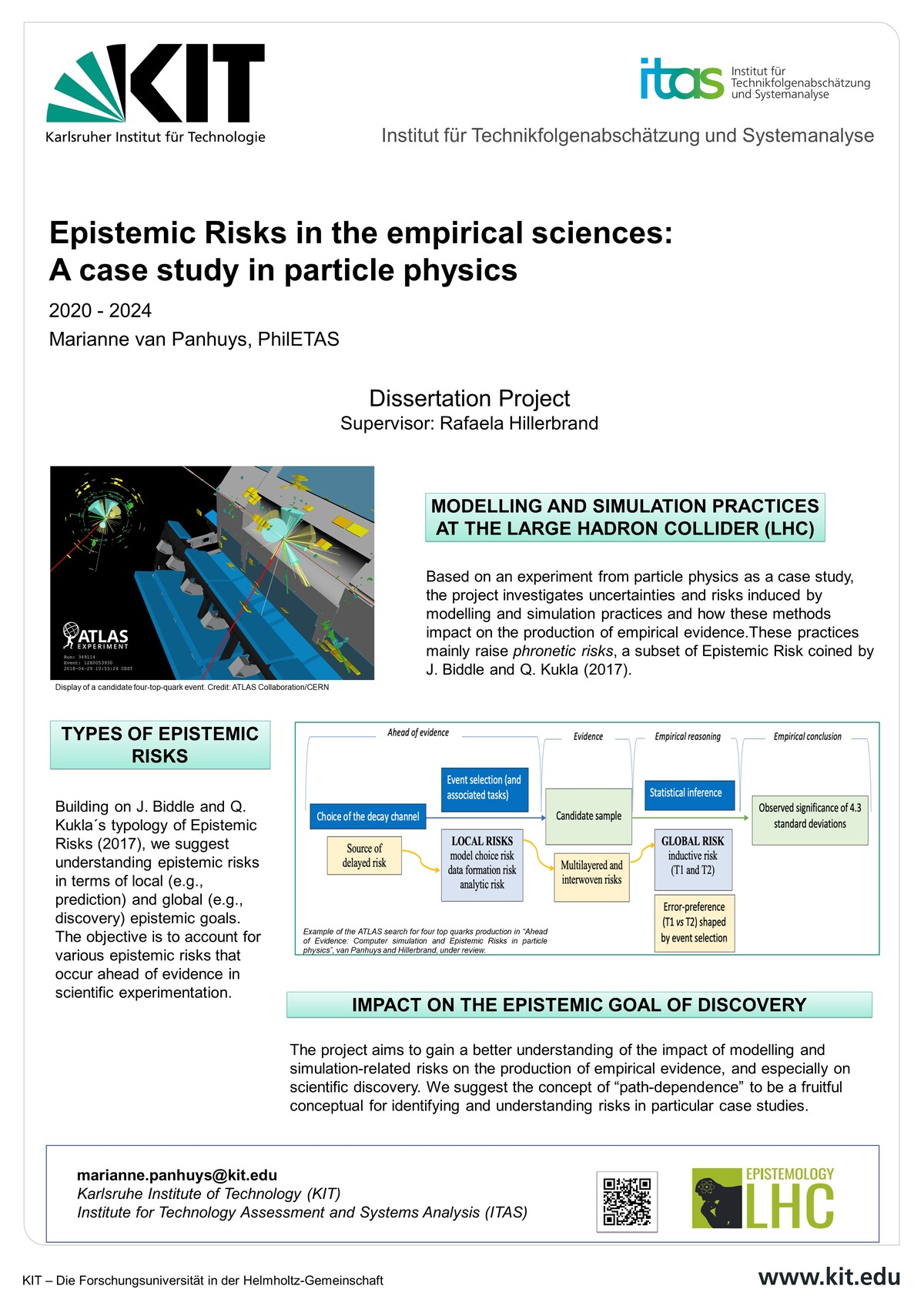Epistemic Risks in Empirical Science. A case study in particle physics
- Project team:
van Panhuys, Marianne (Dissertation)
- Start date:
2020
- End date:
(resigned from ITAS)
- Research group:
Philosophy of Engineering, Technology Assessment, and Science
Project description
Epistemologically oriented research is fraught with uncertainty. Despite uncertainty, decisions must be made that involve risk (Parascandola, 2010). For philosophical and scientific analysis of risks arising from empirical reasoning, recent technological changes in scientific activity require new insights into the risks these technological developments pose. The increasing use of computer simulations in experiments and large-scale collaborative research enabled by digital networking opened up unprecedented instrumental possibilities toward the end of the 20th century, epitomized by the Large Hadron Collider (LHC) at CERN in Geneva. Aiming for a better understanding of the “building blocks” of our universe, various particle physics experiments are conducted at the LHC, such as those using the general-purpose detector ATLAS.
Against this background, philosophy of science has in recent years addressed epistemological issues related to computer simulations, raising questions such as whether it is a sui generis activity requiring a novel epistemology (Winsberg, 2003; Frigg & Reiss, 2009). More generally, social aspects of high-energy physics experiments involving computer simulation have also been discussed (Pickering, 1999). Epistemic risks posed by computer simulations, however, have not yet been adequately addressed in the philosophy of science, although they may be associated with specific risks and new uncertainties due to their lack of transparency. Based on a case study from the promising field of top quark physics, this thesis therefore explores epistemic risks posed by computer simulations and their impact on the discovery potential of ATLAS in the search for new physics.
The thesis addresses the following questions:
- What are the sources of uncertainty in the ATLAS experiment? Are there specific risks related to computer simulations?
- How are they managed and quantified? Are there residual risks?
- How does the inclusion of computer simulations in scientific inquiry affect the discovery potential of the ATLAS experiment?
Administrative data
| Supervisor: | Prof. Dr. Dr. Hillerbrand Rafaela |
| Advisor: | N.N. |
| Related projects: | DFG project research unit “The Epistemology of the Large Hadron Collider” |
| Doctoral students at ITAS: | see Doctoral studies at ITAS |


